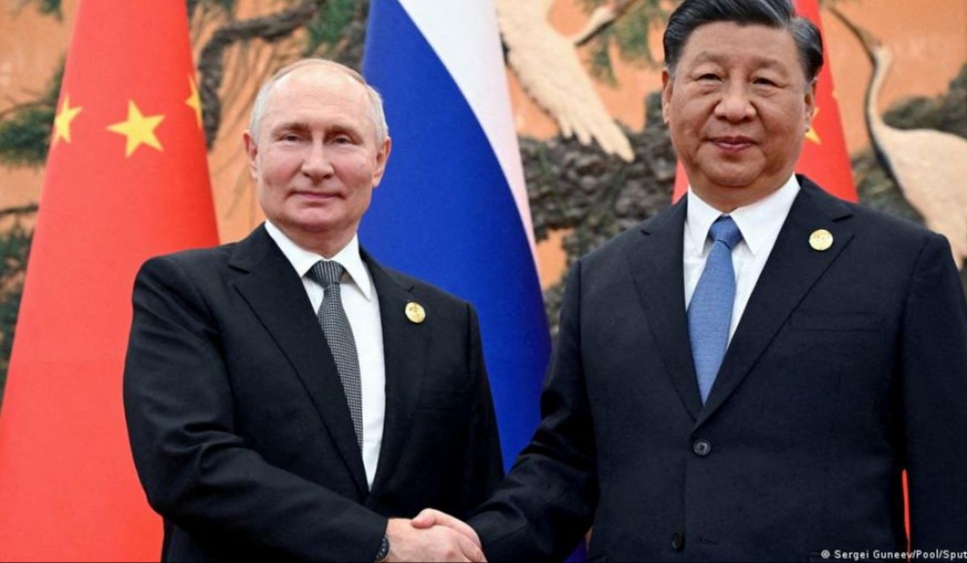
President Putin and Chinese leader, Xi
NATO gets tough on China for backing Russia’s war with Ukraine
NATO leaders are expected to call out China for its support of Russia’s war machine at their summit in Washington. However, they are divided over their approach to the Indo-Pacific region.
At their summit in the US capital, NATO leaders are not only set to approve a new military aid package for Ukraine, but also to talk tough on China.
In an interview with US media ahead of the summit, NATO Secretary General Jens Stoltenberg described China as “the main enabler of Russia’s war of aggression against Ukraine.”
Antony Blinken, the US Secretary of State, told DW at a foreign ministers’ meeting in Prague in May that China’s support was “a huge difference-maker right now on the battlefield.” He added that for China to purport to seek better relations with countries in Europe while at the same time fueling the biggest threat to Europe’s security “does not add up.”
Beijing has repeatedly denied supplying Moscow with weapons. However, the alliance has accused China of building up Russia’s war machine by providing critical components.
According to the US assessment, China is the top supplier of machine tools, microelectronics, and nitrocellulose — critical to making munitions and rocket propellers — and other dual-use items that Moscow uses to ramp up its defense industrial base.
China’s behavior during the war in Ukraine is being viewed by NATO countries as proof that Europe cannot afford to ignore the challenge Beijing poses.
According to a senior US State Department official, the alliance is now “focused like a laser on the relationship between China and Russia.”
China a problem for the whole US alliance system?
This is quite a shift for an organization that has been traditionally focused on security in the transatlantic area. China was not featured in a high-level NATO public document until the end of 2019. Only in its latest strategic concept, agreed in Madrid in 2022, the alliance describes Beijing’s ambitions as a challenge to its security.
“There is a shift,” Liselotte Odgaard, a senior fellow with the conservative Hudson Institute in Washington, D.C., told DW. This shift started under former US President Donald Trump and “has taken off in Europe.”
Odgaard pointed out that the US considered China the principal threat to its security interests for a long time. “But they have convinced Europe — and pushed Europeans — to see that China is also a problem for Europe and for the whole US alliance system,” she said.
Many in Europe now seem to acknowledge that US allies in Asia and Europe face some of the same challenges. “And as Russia and China cooperate, there is a need to mirror that cooperation by strengthening European cooperation with Asian partners,” Odgaard said.
What do nations in the Indo-Pacific say?
Confronted with a more assertive and aggressive China, some countries in Asia also seem to be convinced of a need for more cooperation.
When Japan’s prime minister addressed a session of the US Congress in April this year, he spoke about Russia’s invasion of Ukraine. “Ukraine of today may be East Asia of tomorrow,” Fumio Kishida told US lawmakers.
In June, South Korean National Security Advisor Chang Ho-jin told reporters Seoul will review the possibility of supplying weapons to Ukraine, after the leaders of North Korea and Russia signed a pact pledging mutual defense in the event of war.
